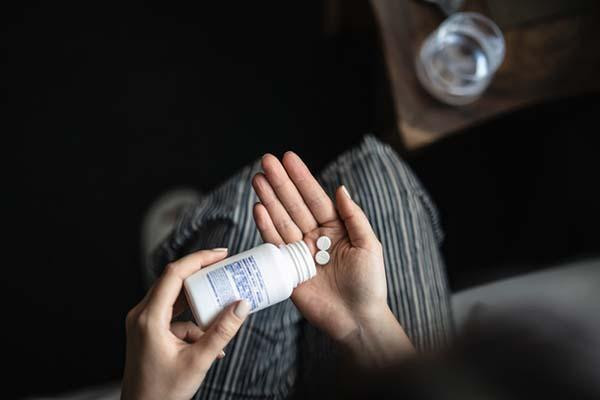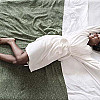Prescription insomnia medications: What to know

Excerpted from Improving Sleep , Medical Editor: Lawrence Epstein, MD, Instructor in Medicine, Harvard Medical School.
If you’re struggling to sleep, you’re not alone. Insomnia is one of the most common sleep problems. The good news is that there are effective strategies to help you sleep better. For most people, adopting healthy sleep habits such as keeping a regular sleep schedule, limiting screen time before bed, and creating a calm, dark sleep environment can significantly improve sleep. For others, cognitive behavioral therapy (CBT) done with a sleep psychologist or sleep physician can be effective.
While CBT and sleep hygiene are first-line treatments for chronic insomnia, medications may be recommended for short-term or situational use such as traveling across time zones or coping with a death in the family. Prescription medications should be used at the lowest effective dose and for the shortest possible period of time. For longer-term insomnia treatments, behavioral therapies should be prioritized, as they are often just as effective and may have longer-lasting benefits — without the side effects of drugs.
There are several types of prescription medications for insomnia. These include:
- benzodiazepines (also used for anxiety)
- nonbenzodiazepines (which target sleep receptors)
- antidepressants (prescribed at lower doses than for depression)
- some newer sleep drugs that target two different brain chemicals — melatonin and orexin — (which affect brain chemicals involved in sleep regulation).
Benzodiazepines
Benzodiazepines enhance the activity of GABA, a neurotransmitter that calms brain activity. Different benzodiazepines vary in how quickly they take effect and how long they remain active in the body. Because of this, even when taken at bedtime, some can leave you feeling drowsy the next day.
If your main problem is getting to sleep, your doctor may prescribe a fast-acting, short-duration drug such as triazolam (Halcion). If staying asleep is your main issue, a drug that lasts longer — such as estazolam or temazepam (Restoril) — may help. These drugs are helpful for people whose insomnia is linked to anxiety.
However, benzodiazepines have significant drawbacks. They reduce how much deep sleep you get and can lead to tolerance, meaning you need to take higher doses of the drug in order to obtain the same effect. After a few weeks, they may no longer work.
Another risk is that stopping the medication abruptly after using it for months can cause insomnia that’s even worse than the insomnia you had before you started taking the drug (a phenomenon known as rebound). These medications should be discontinued under a doctor’s supervision, because withdrawal may lead to muscle tension, restlessness, irritability, or, in rare cases, convulsions.
Nonbenzodiazepines
Nonbenzodiazepines — including eszopiclone (Lunesta), zaleplon (Sonata), and zolpidem (Ambien, Edluar, Zolpimist) — also enhance the sleep-inducing activity of GABA. Unlike benzodiazepines, the nonbenzodiazepines act only on the sleep receptors, which means they cause fewer side effects. They also appear to have little or no effect on deep sleep.
All three drugs make you fall asleep quicker, but only eszopiclone and zolpidem lengthen total sleep time. Zaleplon and zolpidem act quickly (within 20 minutes) and, for the most part, wear off before your typical waking time. Zaleplon wears off especially quickly, so it may not keep you asleep the whole night if you take it before bed. But you can take one if you wake up in the middle of the night and can’t fall back asleep.
Eszopiclone takes a little longer to take effect and also lasts longer. Ambien CR, a long-acting version of zolpidem, helps with problems with staying asleep as well as falling asleep.
Zolpidem is the most prescribed sleep medication and comes in multiple forms. Most common is a tablet you swallow with water (Ambien). But it also comes as a tablet you place under your tongue (Edluar) and an oral spray (Zolpimist) that you spray over your tongue. These new formulations are absorbed more quickly, so they may take effect sooner — and are easier to use because you don’t need water to take them.
Side effects of zolpidem include morning grogginess, tolerance, and rebound insomnia, as well as headache, dizziness, nausea, and, in rare cases, sleepwalking and sleep eating. The highest risk is with the extended-release form (available as a generic or as Ambien CR), but the other forms of zolpidem may cause the same problem.
With any sleep medication, allow for eight hours of sleep, and avoid doing things that demand high levels of alertness first thing in the morning.
Antidepressants
The only antidepressant that is FDA-approved as a treatment for insomnia is doxepin (Silenor). Other antidepressants prescribed “off-label” for insomnia include trazodoneand amitriptyline. The medications are typically prescribed at a lower dose than for depression.
Studies of depressed people who also have sleep problems show that these medications reduce the time it takes to fall asleep and decrease the number of nighttime arousals. How they work isn’t clear. The drugs may act directly as sedatives or by easing anxiety and mild depression, making it easier to relax and fall asleep.
The effect of antidepressants on sleep quality varies; in general, they reduce REM sleep but have little impact on deep sleep.
Side effects can include dizziness, dry mouth, upset stomach, weight gain, and sexual dysfunction, and increased leg movements during sleep. Some people find certain antidepressants make them feel nervous or restless, so the medication can actually make insomnia worse. It’s not clear if these antidepressants lead to tolerance or rebound insomnia.
Melatonin-receptor agonists
Ramelteon (Rozerem) mimics the body’s naturally produced melatonin, a hormone that promotes sleep. It stimulates the same receptors as melatonin in the part of the brain that controls the circadian cycle of sleep and wakefulness.
Ramelteon is more potent than over-the-counter melatonin. It takes effect quickly, but it also wears off within hours. For that reason, the drug is approved to treat insomnia for people who have trouble falling asleep at bedtime rather than those who have trouble staying asleep.
Side effects include dizziness and, in some cases, worsening symptoms of depression. People who have severe liver damage or who use the antidepressant fluvoxamine (Luvox) shouldn’t take them.
Orexin-receptor antagonists
These drugs work by blocking orexin (also known as hypocretin), a neurotransmitter that promotes wakefulness.
Suvorexant blocks one of two types of orexin receptors in the brain. The other drugs in this class — daridorexant (Quviviq) and lemborexant (Dayvigo) — block both types of orexin receptors and are referred to as dual orexin-receptor antagonists.
Orexin-receptor antagonists should be taken within 30 minutes of going to bed, and only if you can devote at least seven hours to sleep. Side effects include next-day drowsiness, dizziness, headache, and unusual dreams. They may be helpful for treating sleep-maintenance insomnia (when you wake up too early and can’t get back to sleep) and for people who are hospitalized.
For many people, behavioral therapies and healthy sleep habits are the best treatment for insomnia. But when medications are needed, they can provide short-term relief to help you get back on track. If you’re considering these medications, it’s essential to do so under the guidance of your doctor and to choose the safest, lowest medication dose for the shortest duration.
Disclaimer:
As a service to our readers, Harvard Health Publishing provides access to our library of archived content. Please note the date of last review or update on all articles.
No content on this site, regardless of date, should ever be used as a substitute for direct medical advice from your doctor or other qualified clinician.















